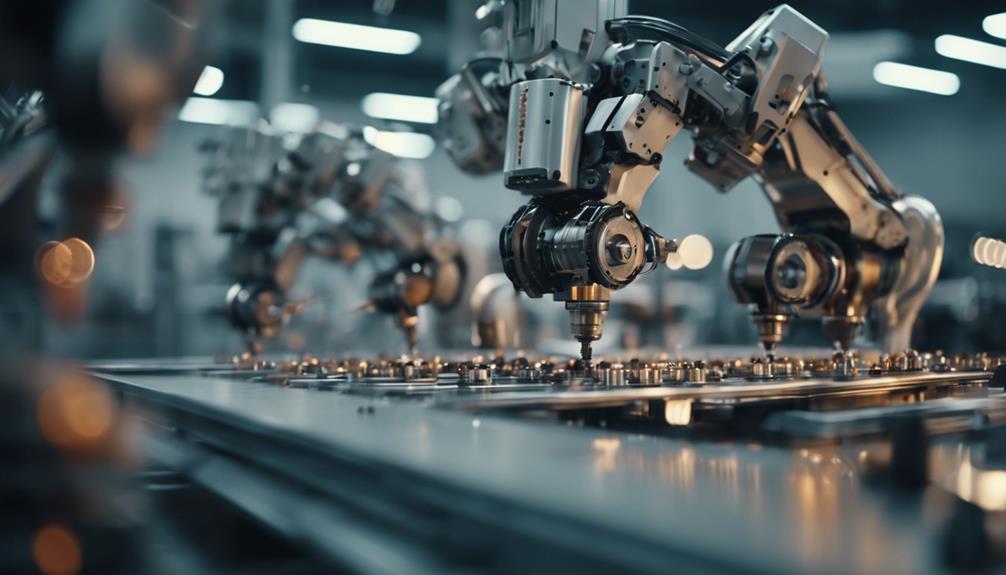In 2025, debates focus on ethical and environmental issues surrounding lab-grown meat, gene editing, climate engineering, and space colonization. People question the safety, moral implications, and ecological impacts of these technologies. Discussions also explore whether these advancements could distract from pressing Earth problems or offer crucial solutions for survival. As these topics evolve, you’ll discover more about how society is shaping policies and balancing innovation with responsibility.
Key Takeaways
- Ethical concerns over gene editing’s potential for unintended genetic consequences and ecological impacts.
- Debates on lab-grown meat’s safety, nutritional value, and implications for traditional agriculture.
- Discussions about regulation, intellectual property rights, and accessibility of emerging biotechnologies.
- Balancing innovation with safety and ethical considerations in editing human and environmental genomes.
- Growing focus on responsible governance for advanced biotech applications amid societal and environmental risks.

In 2025, scientific communities worldwide are engaging in some of the most critical and debated topics of the decade. Among these, climate engineering and space colonization stand out as frontiers that could reshape human existence. Climate engineering, often called geoengineering, involves deliberate interventions to control or modify Earth’s climate. Proponents argue it’s a necessary response to the escalating climate crisis, especially as global temperatures rise and natural solutions fall short. Techniques like solar radiation management or carbon dioxide removal are gaining attention, but they also raise concerns about unintended consequences and ethical dilemmas. You might find yourself questioning: Are we tampering with Earth’s delicate balance, or are we simply doing what’s necessary to prevent catastrophe? The debate hinges on whether these interventions can be controlled reliably or if they could trigger unpredictable environmental shifts. Additionally, understanding the stability of these solutions depends heavily on vital scientific data, which guides policymakers and researchers in evaluating risks and benefits.
Meanwhile, space colonization is no longer just science fiction. Researchers and space agencies are actively exploring methods to establish human settlements beyond Earth. The potential for space colonization sparks excitement about expanding humanity’s reach and ensuring our species’ survival in case of global disasters. Yet, this ambition isn’t without controversy. You may wonder about the technological, ethical, and logistical hurdles involved—such as life support systems, radiation shielding, and the ecological impacts of off-world habitats. As advancements in propulsion, habitat design, and life sciences progress, the debate intensifies over whether space colonization is a feasible and responsible goal or an impractical distraction from Earth’s pressing issues. Both climate engineering and space colonization challenge traditional perceptions of environmental stewardship, pushing scientists to weigh risks against potential benefits.
These debates are not just theoretical; they influence policy, research funding, and public opinion. You might observe that governments and private companies are investing heavily in these areas, seeing the promise of innovation while grappling with the profound moral questions involved. The idea of manipulating Earth’s climate or venturing into the cosmos raises concerns about governance, global cooperation, and long-term consequences. As these discussions unfold, you realize they reflect deeper questions about humanity’s role on the planet and beyond. They force you to contemplate whether technological progress should be prioritized over caution or vice versa. Ultimately, these discussions shape the trajectory of scientific exploration—balancing hope for solutions with caution about unforeseen risks, and challenging you to think critically about the future direction of human innovation.
Frequently Asked Questions
How Will Lab-Grown Meat Impact Traditional Farming Communities?
Lab-grown meat will challenge traditional farming communities by disrupting the rural economy and cultural traditions. As more people adopt lab-grown options, demand for farm-raised meat drops, potentially leading to job losses and economic decline in rural areas. You might find that longstanding cultural practices centered on farming and animal husbandry face erosion, forcing communities to adapt or reinvent their identities while embracing new food technologies.
What Are the Long-Term Health Effects of Gene Editing in Humans?
Imagine your genes as a blueprint, and gene editing as a precise sculptor. The long-term health effects remain uncertain, with potential genetic safety concerns and health risks lurking like shadows. While some edits could prevent disease, others might cause unforeseen issues or genetic mutations. You need to stay informed, as ongoing research aims to understand these risks, ensuring that future gene editing benefits outweigh the possible long-term health consequences.
How Do Regulatory Agencies Plan to Oversee Emerging Biotech Innovations?
Regulatory agencies plan to address emerging biotech innovations by developing robust oversight frameworks that adapt to rapid advancements. You’ll see them tackling regulatory challenges by updating policies, establishing clear safety standards, and fostering international collaboration. They aim to guarantee innovations like gene editing and lab-grown meat are safe for public health and the environment while encouraging responsible innovation, balancing innovation with caution to protect consumers and ecosystems alike.
Will Gene Editing Be Accessible to Developing Nations?
Imagine a garden with seeds of innovation; will everyone get to plant these seeds? Gene editing, amid bioethics debates and concerns over intellectual property, could become accessible to developing nations if equitable policies emerge. Right now, barriers like patents and funding challenge access, but global cooperation can open this potential. You can be part of shaping a future where gene editing benefits all, regardless of where you’re from.
What Ethical Considerations Surround Animal Welfare in Biotech Research?
You should consider animal rights and the moral implications of biotech research, as they directly impact animal welfare. Ethical concerns arise when animals are subjected to genetic modifications or invasive procedures, raising questions about their suffering and rights. It’s essential to balance scientific progress with compassion, ensuring that research minimizes harm and respects animal dignity. Responsible biotech practices should prioritize ethical standards that protect animal welfare and address broader moral considerations.
Conclusion
As you navigate the scientific debates of 2025, remember they’re like a tug-of-war shaping our future. Lab-grown meat, gene editing, and other breakthroughs challenge what we thought was possible. Staying informed helps you see the bigger picture, like a lighthouse guiding through fog. Embrace the discussions—these debates aren’t just about science, but about the world we’re building together. Your voice matters in this exciting race toward tomorrow.










